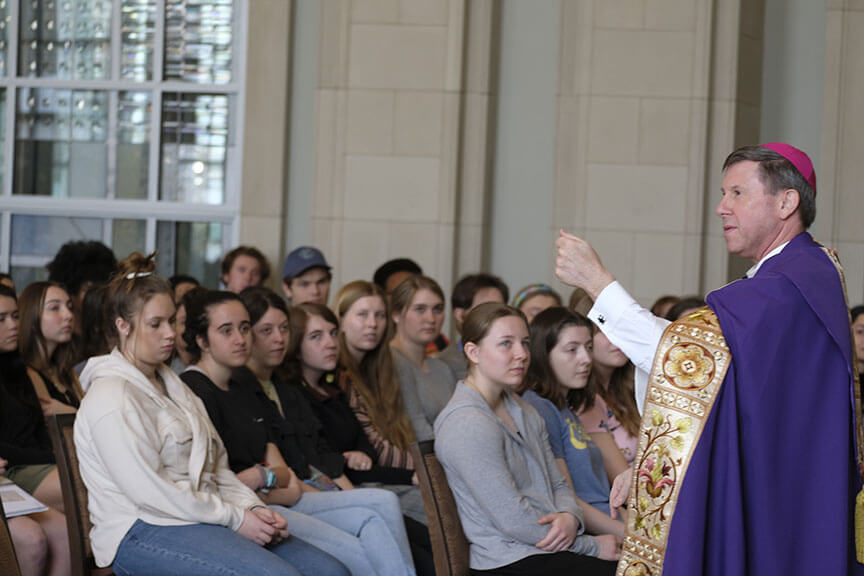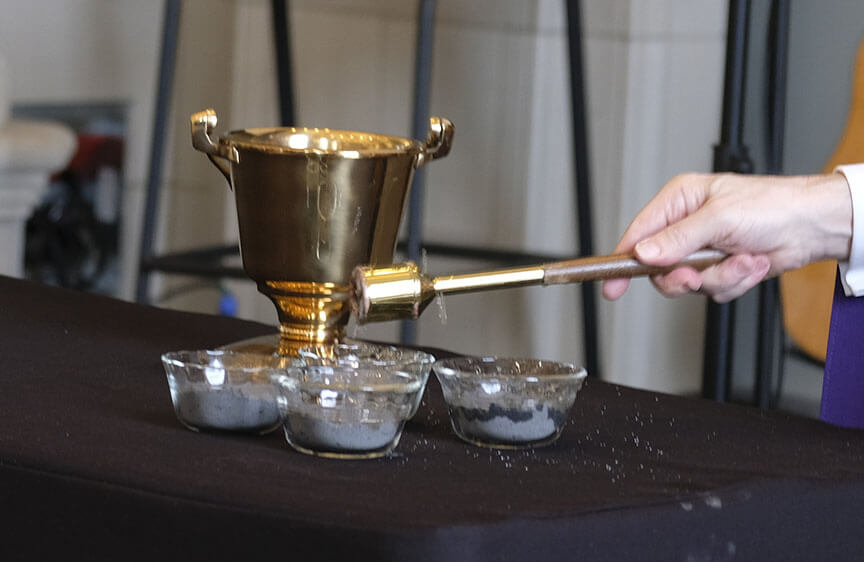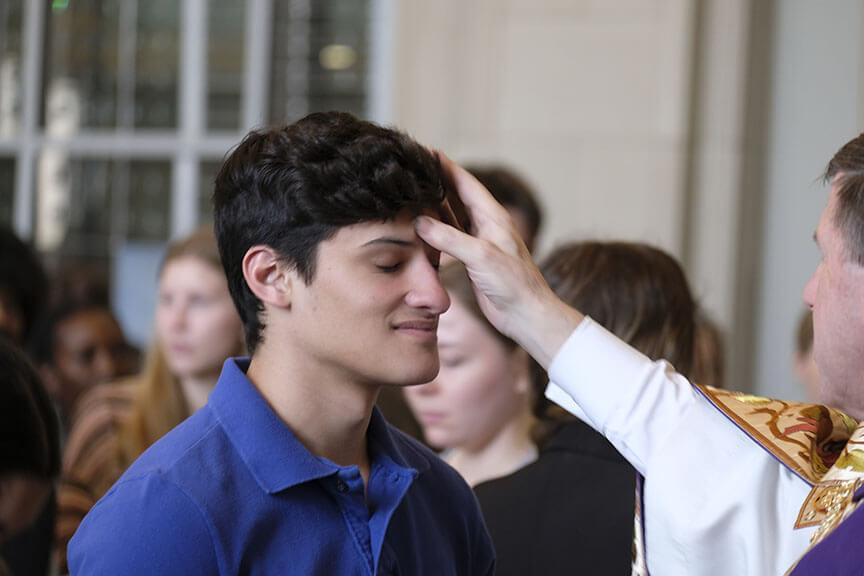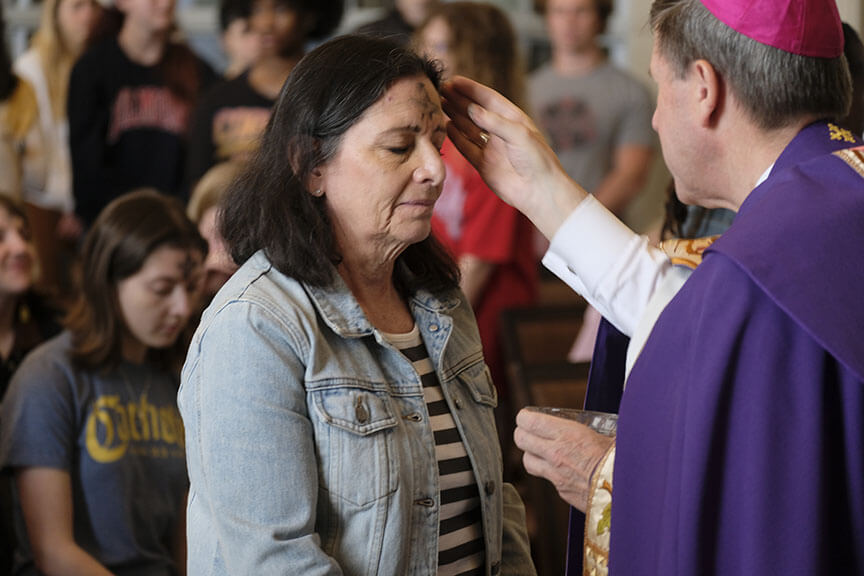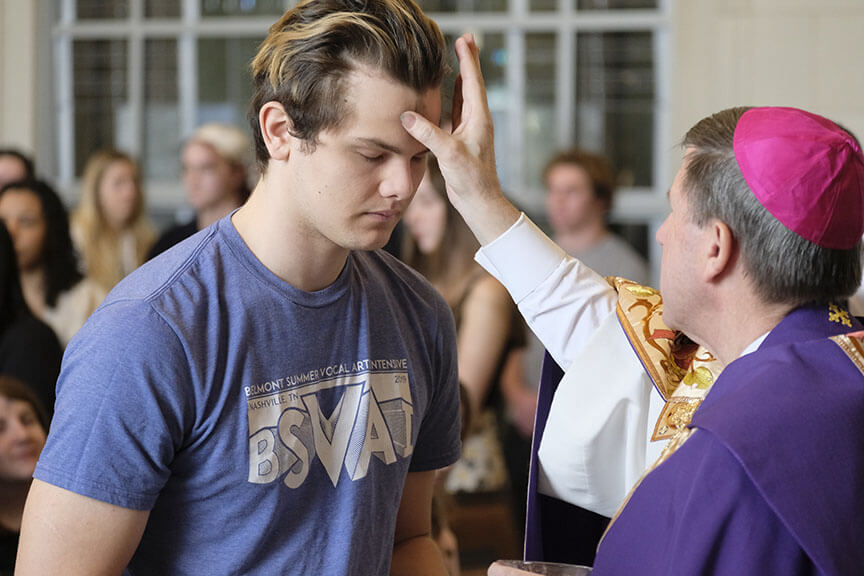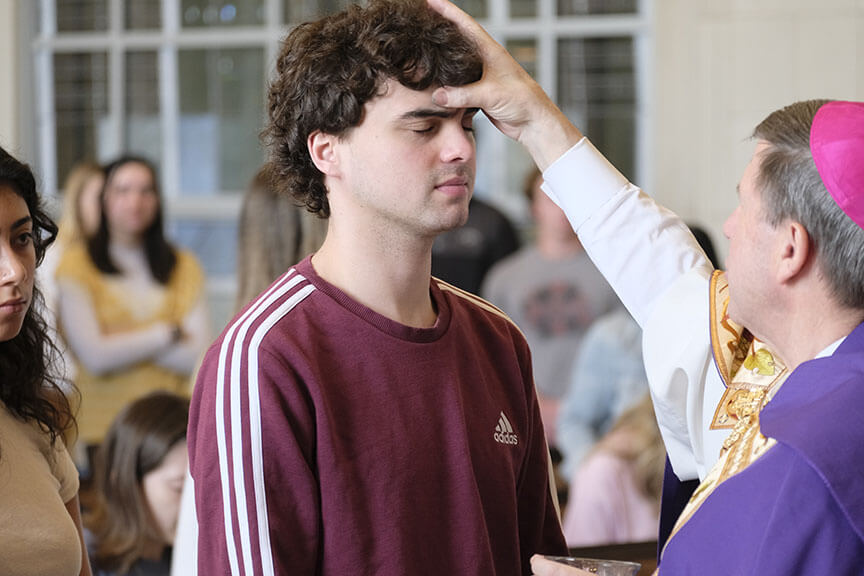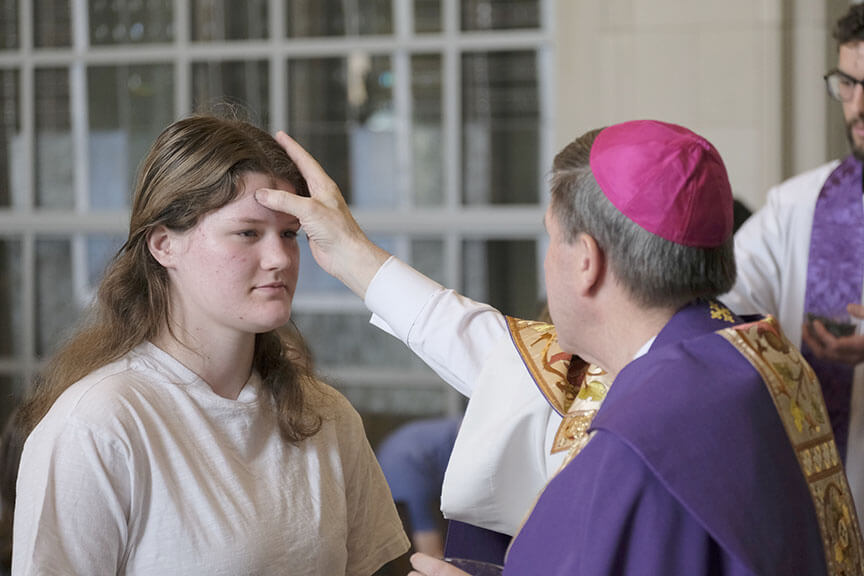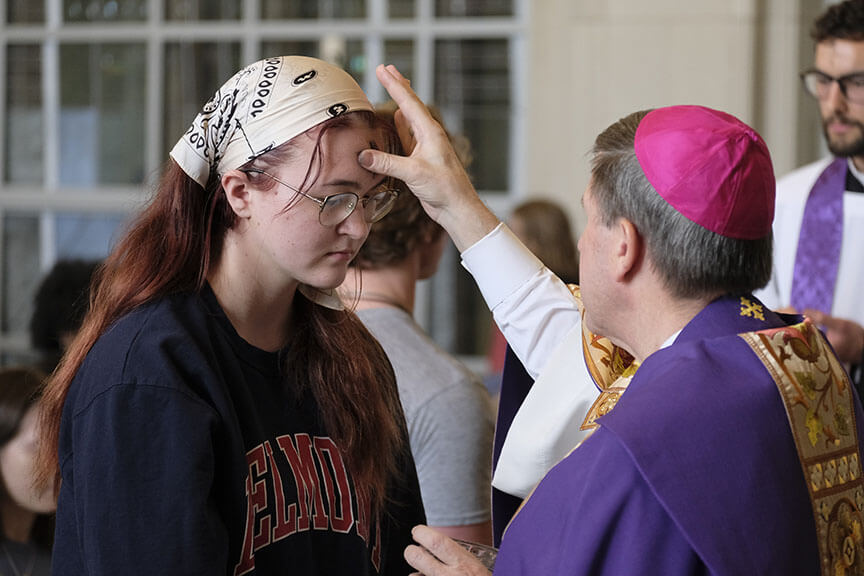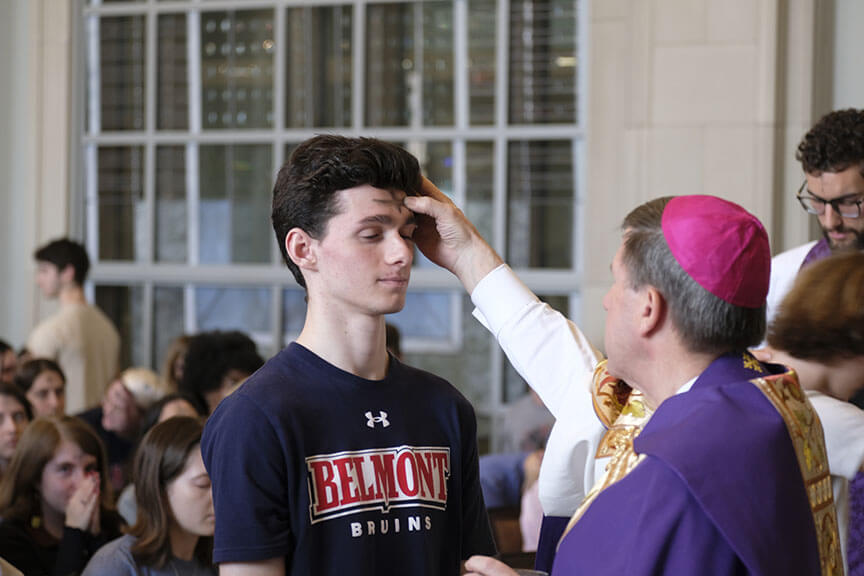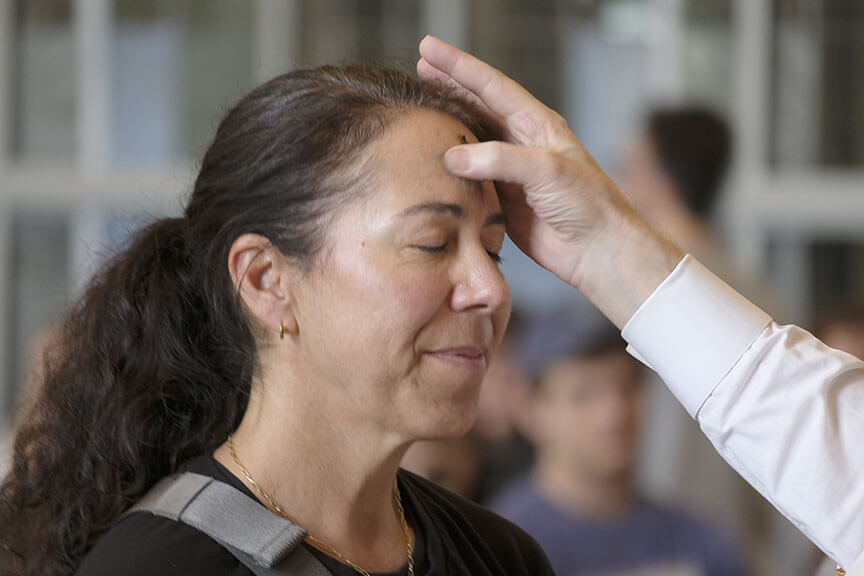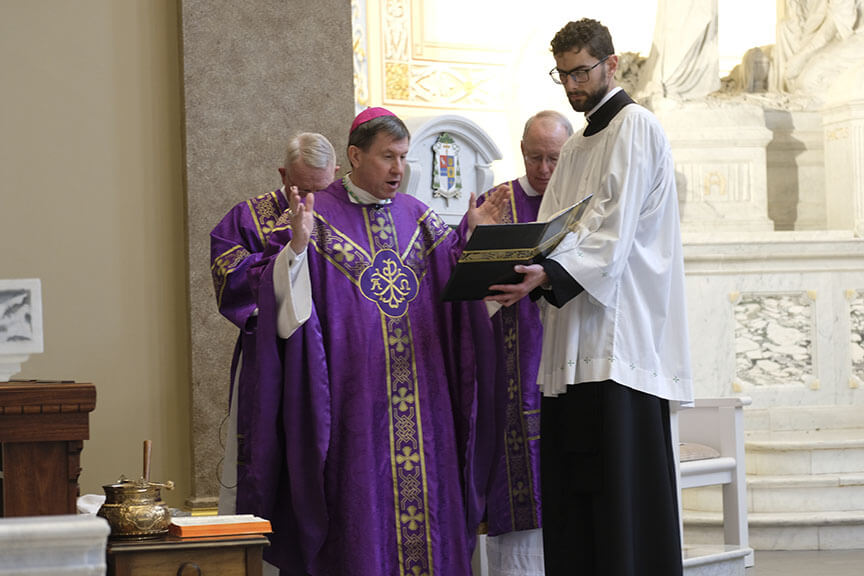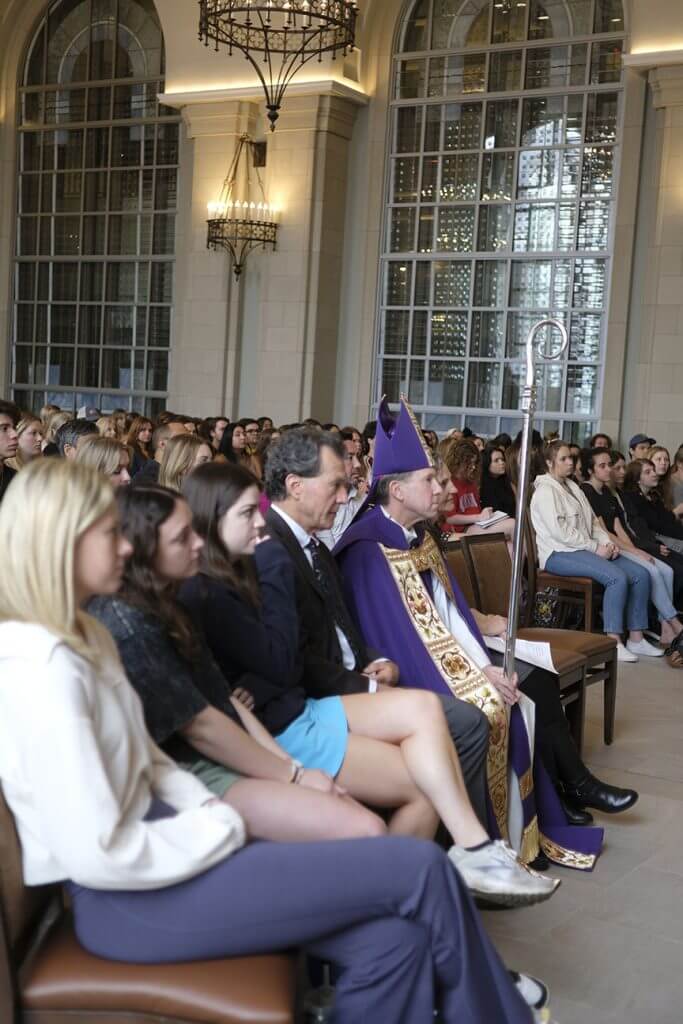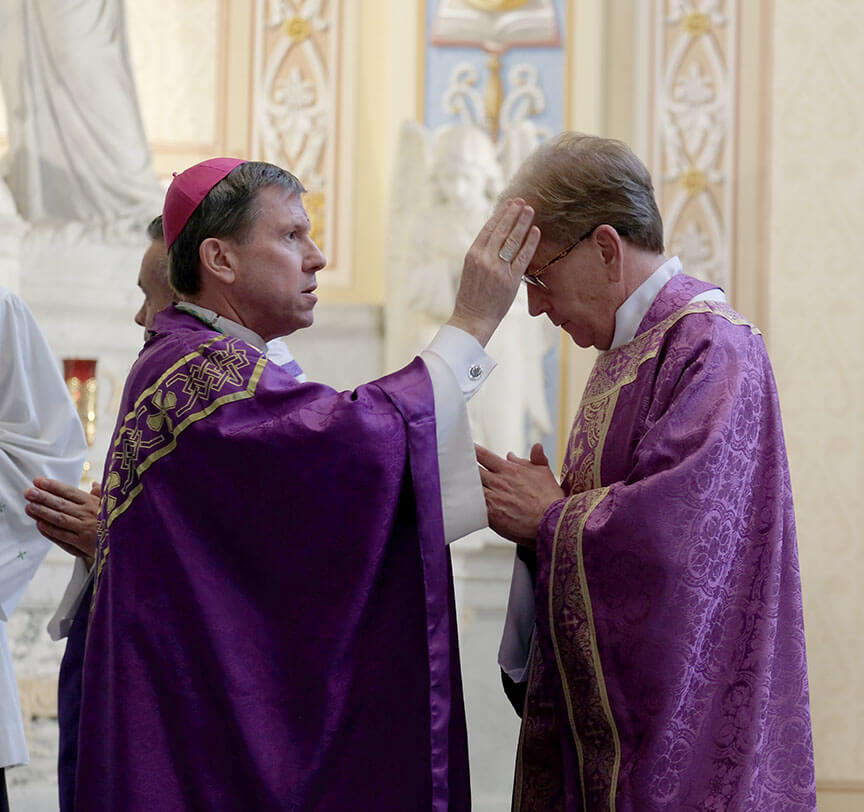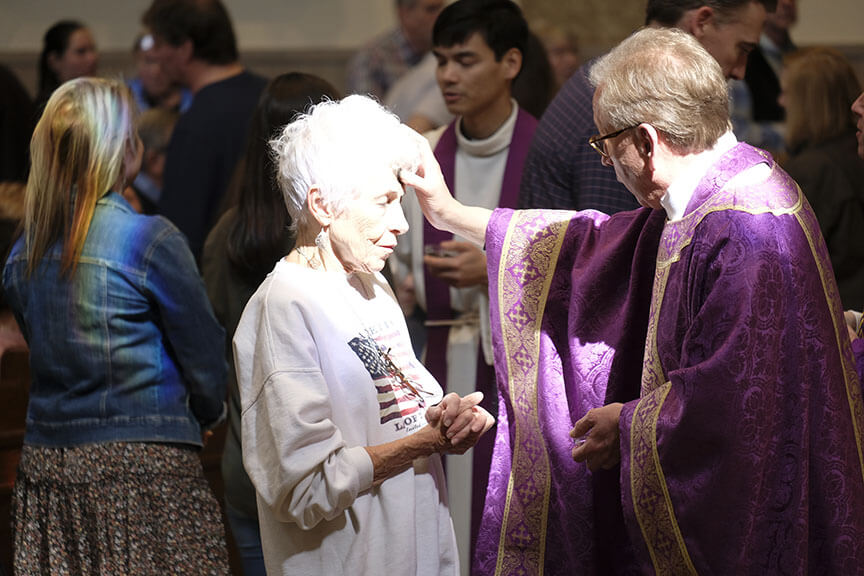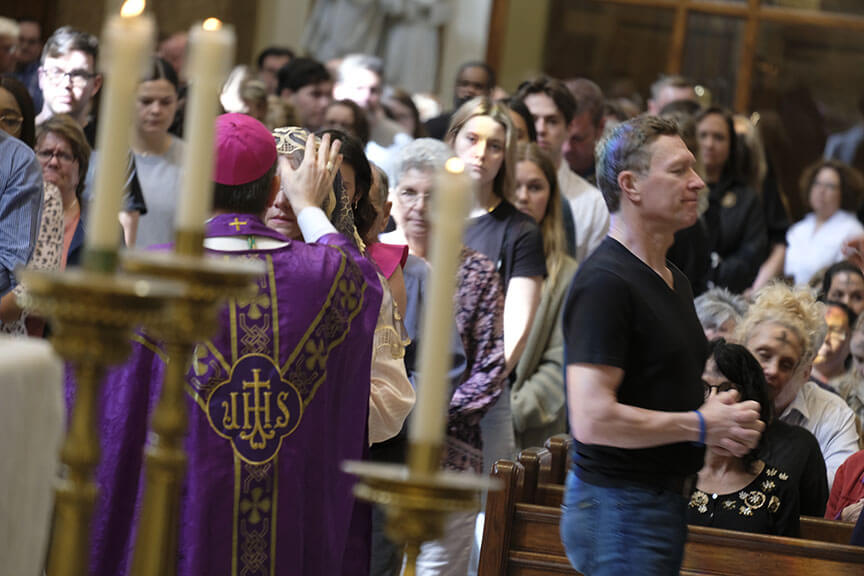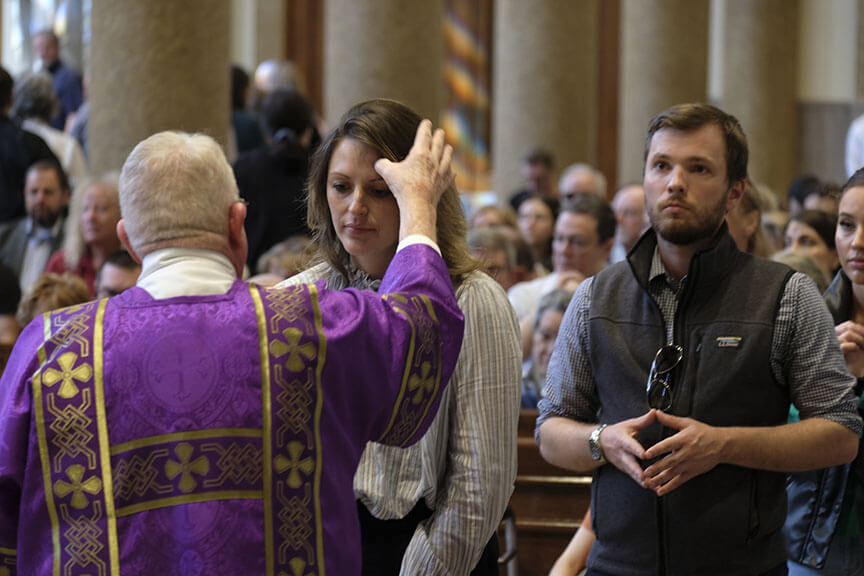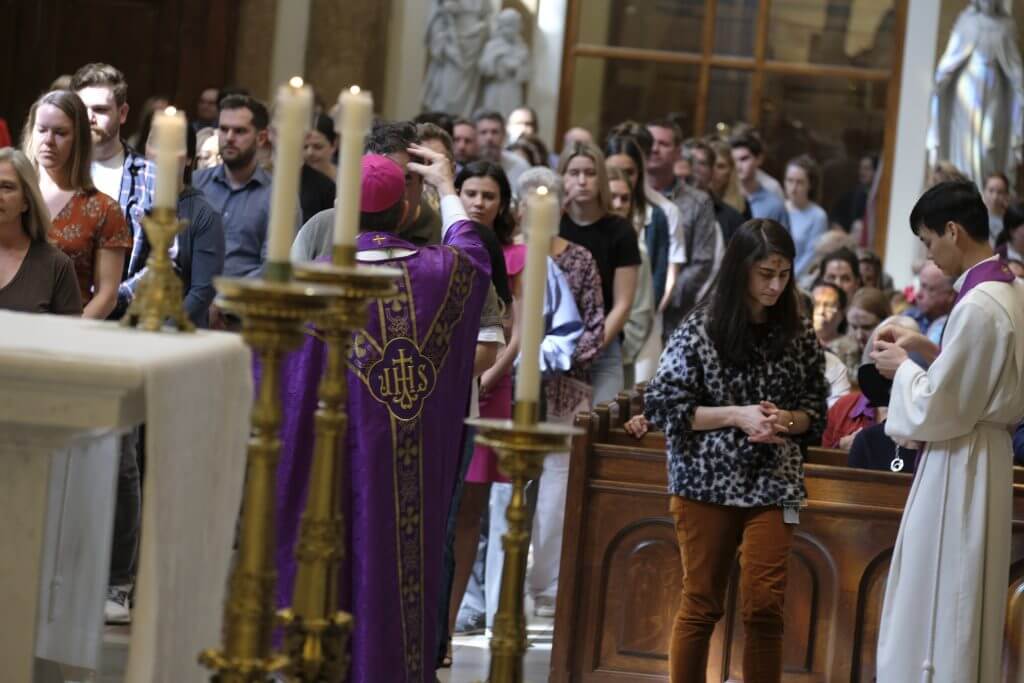
As Bishop J. Mark Spalding and priests of the Diocese of Nashville distributed ashes to people throughout Middle Tennessee during Ash Wednesday Masses and services, Feb. 22, they proclaimed these words: “Remember you are dust, and to dust you shall return.”
Catholics and non-Catholics alike heard them because, no matter what faith background, Ash Wednesday acknowledges that all are sinners.
“Today, we, along with millions of Christians around the world, observe Ash Wednesday. This day marks the beginning of the season of Lent,” said Father Rhodes Bolster, chaplain of University Catholic and master of ceremonies for Bishop Spalding, who addressed the nearly 375 Belmont University students that attended an ecumenical Ash Wednesday service in the Janet Ayers Academic Center Chapel.
“Lent is a season of 40 days, in which Christians prepare for the celebration of the resurrection of Jesus Christ at Easter,” Father Bolster said. “This season is characterized by deeper prayer and conversation with the Lord, fasting from something, or adding a spiritual practice to remove that which distracts us from God, and also almsgiving as a means of aiding our brothers and sisters in need and doing a work of justice pleasing to God.”
“In ancient times, ashes were used to express mourning. Throughout Scripture, ashes are used as a sign of confession and humility. Those who wished to show that they were truly sorry for their sins and were ready to turn to a different way of life would put on sackcloth and cover themselves with ashes,” Father Bolster continued, noting that those in attendance would receive the same opportunity. “The ashes that you will wear serve as a sign of humility, a reminder that our lives will pass away, and yet, the ashes also remind us that our God is gracious and merciful to those who call on his name with a repentant heart.
“As we take time for prayer, confession and reflection, we must also remember that in Jesus Christ, God is at work in us, transforming and renewing us day by day the more that we surrender to him,” he said. “Today, you are receiving an invitation to join the Church on a journey. A journey that asks you to spend significant time reflecting on your own life; a journey that asks you to confess places of brokenness and despair in your life; a journey that asks you to surrender your life to Christ who is the resurrection and the life; a journey that asks you to focus on practices that will draw you more deeply into the life of God; and all of this so that you can receive the fullness of life to which God has called you and remains faithful in his calling.”
As a non-Catholic, the ecumenical service at Belmont was the first Ash Wednesday service that senior Marcus Knight had ever attended. It was curiosity, he said, that led him to attend as well as one of his professors asking him to read one of the Scripture passages for the service.
“I enjoy being able to see other traditions and get a feel for why people believe the way that they believe,” said Knight, who grew up attending a Missionary Baptist church. “I really admired the themes of sacrifice. I feel like that’s not talked about enough.
“When you’re walking daily with God and you’re being called to whatever his purpose is for your life, there is a sentiment and a spirit of sacrifice that you must have, and that’s a daily task,” he said. “You have to keep asking him in prayer to give you that right heart for sacrifice.”
Knight said he appreciated the willingness of everyone to participate in the service even if they were not Catholic.
“If you draw attention to our humanity, it draws out God’s divinity so much more,” he said. “I feel like we so often put ourselves on a pedestal … but we have to have humility, we have to have a sense of obedience and of confidence that God is who he says he is and that he is also bringing that sanctifying work to us every single day.”
Madison Perry, a sophomore at Belmont and a regular attendee of the Cathedral of the Incarnation, said she enjoyed how the service brought in the Catholic elements with Bishop Spalding presiding and traditional chants being sung, but also had a familiar element for those non-Catholics with leaders from other faith traditions and praise and worship music.
“It was great to intermix everything,” she said.
“Ash Wednesday is the beginning of the 40 days of going into Lent,” said Perry, as she reflected on the importance of the day and its meaning. “We’re entering into this desert where we’re taking a step back and looking at the things in our life that we need to change.
“I want to ultimately be prepared for the resurrection of Jesus Christ because he rose for our salvation,” she said. “How do I prepare my heart in that way so that it is ready for His resurrection?”
Bishop Spalding answered that question throughout his homilies both during the ecumenical service at Belmont and the afternoon Mass at the Cathedral of the Incarnation.
Lent encourages the faithful to prepare for Christ’s resurrection in three ways – prayer, fasting, and almsgiving.
“Prayer. Your presence right here, what a wonderful sign,” said Bishop Spalding, who then encouraged the congregations to invite others to join in the celebration. “When you get in your car, take a picture of yourself, a selfie and admire the beauty of my artwork on your forehead, and tell your family and friends, you can get one of these, too.
“My dear people, we must always be inviting people here, into the faith, into this season because we only have a moment, a lifetime to live on this earth, and we’ve got to live it well because we want to get to heaven, and we want to take as many with us as we go.”
We prepare for Easter through fasting, he said.
“We give up ourselves,” the bishop said. “We teach ourselves in the midst of this Lent, ‘I can control my body. I can control what is tempting me to go down a path that is not right and good, and so I give up and let go for God, and he comes into my life.’”
Finally, we prepare for Easter through almsgiving, he finished.
“We are generous with the goods that we have so we can free ourselves from possessions and our own attachment to money … and help raise up those less fortunate and be generous in our life, great things happen. It’s as simple as that.”
“As we enter into this moment understand this. God threw out Adam and Eve and said, ‘Remember you are dust and to dust you shall return.’ But from that moment in the garden, being exiled, God had a plan,” Bishop Spalding concluded. “He had a plan, and it was revealed in his son, and that we celebrate today and always as we gather, as we go out of the garden, with God’s help, we head toward heaven.”
